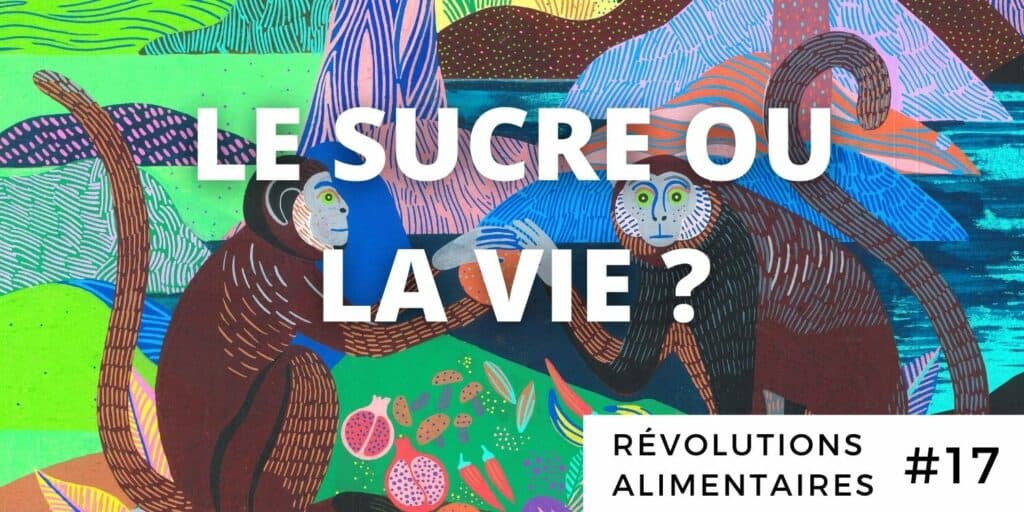Listen to this episode
What are the dangers of sugar?
Today we are going to talk about sugar. Not the constitutional capital of Bolivia, but this addictive food for both young and old!
We love sugar and the industry knows it well. They put it everywhere, even in foods we wouldn’t normally think of as sweet, like condiments or prepared meals.
Sugar is a highly effective flavor enhancer used to sell. Sugar consumption skyrocketed after World War II with biscuits, sweet desserts, cereals, fruit juices, and sodas.
We had praised fat some time ago, proclaiming with Alexandre Astier that fat is life, and now here is our new enemy, sugar, which must be identified, watched on labels, reduced and learned to be replaced.
And it’s Camille who will accompany us on this journey.
The guest: Camille Lassale
I’ve known Camille for over fifteen years: she was with me in agronomy school, in the nutrition specialization.
She is cheerful, she is brilliant, she traveled from Barcelona, she is a contralto in the choir, and she prefaced one of my recipe books.
After a Master’s in Public Health, Camille completed her thesis in Nutritional Epidemiology at the Sorbonne, studying the associations between diet and cardiovascular diseases notably in the famous NutriNet-Santé study.
She then spent 5 years as a postdoctoral researcher in London. She has lived in Barcelona since 2019, where she worked for 3 years at the research center of the Hospital del Mar. She has just obtained a research position at the Barcelona Institute for Global Health, where she studies among other things the molecular impacts of diet, particularly epigenetics.
She is about to start a new project on chrono-nutrition: beyond the quality and quantity of what we eat, is it important to know when we eat it?
The questions
- Tell us your background in a few words. How does one leave an agronomy school in Paris to become a researcher in Barcelona?
- Before tackling sugar, what would be your general nutritional recommendations?
- Why is sugar considered bad for health? I recently read a study that said it’s as addictive as cocaine.
- Is sugar much more harmful than fat then?
- Can we nuance things by discussing the different types of sugar / the large family of carbohydrates?
- The higher the glycemic index of a food, the more it should be considered toxic for our cells. What is the glycemic index? What is the purpose of measuring it?
- Can you name some foods with a very high glycemic index and others with a very low one?
- What are the latest studies on the subject?
- Reducing sugar, OK. In cakes, I often cut the recommended dose in half. But what can replace white sugar?
- What about cane sugar, whole sugar compared to white sugar? And what about honey or agave syrup that we can put in cakes?
- How much sugar should we consume each day?
- I mentioned chrono-nutrition in the introduction. At what time of day / during a meal is it better to consume sugar?
- Sugar is also a cultural issue. How do we reward children? By offering them candies. Yet, we know today that the addictive nature of sugar engages the reward circuit of the brain, like nicotine or certain drugs. The more this circuit is engaged early, the more the brain becomes dependent on this addiction. How can we detoxify children?
- Share with us a sugar-free recipe?
Resources to go further
- A comprehensive article by a cardiologist on the subject
- Books by Bérangère Philippon
- Vegetables in desserts! (to replace sugar), by Louise Browaeys and Hélène Schernberg
- Low GI cooking, by Sarah Kdouh



